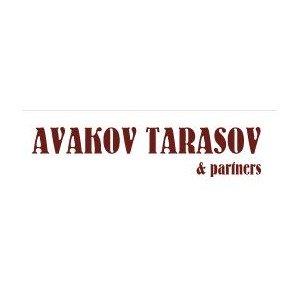Best Antitrust Lawyers in Russia
Share your needs with us, get contacted by law firms.
Free. Takes 2 min.
Or refine your search by selecting a city:
List of the best lawyers in Russia

About Antitrust Law in Russia
Antitrust law in Russia is primarily governed by the Federal Law on Protection of Competition (the Competition Law), enforced by the Federal Antimonopoly Service (FAS). The purpose of this legislation is to promote fair competition and prevent anti-competitive practices such as monopolies and cartels. This involves regulating mergers and acquisitions, preventing unfair competition, and controlling state aid. Russia's antitrust regulations aim to foster an environment where businesses can compete on equal terms, benefiting consumers and the economy.
Why You May Need a Lawyer
Seeking legal advice in antitrust matters is crucial for a variety of situations. Businesses may require assistance when dealing with compliance issues, especially during mergers and acquisitions that could attract the attention of the Federal Antimonopoly Service. Legal help is also essential when facing investigations or accusations of anti-competitive behavior, which can lead to significant penalties. Moreover, understanding local antitrust laws can be complex, and lawyers can help businesses navigate these intricacies. Individuals or companies suspecting they are victims of anti-competitive practices may also need legal guidance to safeguard their interests.
Local Laws Overview
The key aspects of antitrust law in Russia include:
- Monopolistic Activities: Russia’s laws prohibit activities that lead to the abuse of a dominant market position.
- Unfair Competition: Actions disrupting fair competition, like spreading false information or creating barriers for other businesses, are regulated.
- Mergers and Acquisitions: Transactions that may reduce competition or create a dominant position need approval from the FAS.
- Anti-Cartel Regulation: Agreements between companies that restrict competition are strictly prohibited.
- State Aid Control: Monitoring and regulating state subsidies to ensure they do not distort market competition.
Frequently Asked Questions
What constitutes an abuse of a dominant position in Russia?
An abuse of a dominant position involves practices like price manipulation, creating barriers for other businesses, or imposing unfair conditions, which are prohibited under Russian antitrust law.
How does the FAS determine if a merger requires approval?
The FAS assesses mergers based on turnover, asset value, and market share criteria to determine if they require antitrust approval, evaluating their impact on market competition.
What are the penalties for violating antitrust laws in Russia?
Penalties can include hefty fines, orders to cease non-compliant activity, reversal of illegal transactions, or even criminal charges against involved individuals.
Can foreign companies be subject to Russian antitrust laws?
Yes, foreign companies operating in Russia or affecting the Russian market can be subject to local antitrust regulations, especially in merger cases.
What is the role of the Federal Antimonopoly Service?
The FAS enforces antitrust laws, investigates violations, approves mergers, and promotes competitive practices, serving as the main regulatory authority.
How long does an antitrust investigation usually take?
The duration of an investigation depends on its complexity but typically ranges from several months to over a year.
What can businesses do to comply with antitrust laws?
Implementing compliance programs, training employees, and regularly consulting with legal experts are crucial steps in ensuring adherence to antitrust laws.
Is whistleblowing encouraged in antitrust matters?
Yes, Russia encourages whistleblowing with protections for individuals reporting anti-competitive conduct, aiding in the detection of violations.
Can decisions by the FAS be appealed?
Yes, companies and individuals can appeal FAS decisions in court, seeking a review and potential reversal of the agency's actions.
Do antitrust laws affect pricing strategies?
Yes, pricing strategies that involve collusion or unfair dominance may be scrutinized under antitrust laws, necessitating careful consideration and compliance.
Additional Resources
For further assistance, individuals can contact the Federal Antimonopoly Service or consult with professional organizations such as the Russian Bar Association specializing in competition law. Legal resources, academic publications, and seminars may also provide valuable insights into current antitrust issues.
Next Steps
If you need legal assistance in the field of antitrust, begin by consulting with a qualified lawyer experienced in Russian competition law. They can help evaluate your situation, guide you through compliance requirements, and represent your interests in any proceedings. Ensure that any chosen legal firm or consultant has a clear understanding of the local laws and current market practices to provide the best advice and representation. Additionally, staying informed about updates in Russian antitrust regulations and policies will help in long-term compliance and strategy planning.
Lawzana helps you find the best lawyers and law firms in Russia through a curated and pre-screened list of qualified legal professionals. Our platform offers rankings and detailed profiles of attorneys and law firms, allowing you to compare based on practice areas, including Antitrust, experience, and client feedback.
Each profile includes a description of the firm's areas of practice, client reviews, team members and partners, year of establishment, spoken languages, office locations, contact information, social media presence, and any published articles or resources. Most firms on our platform speak English and are experienced in both local and international legal matters.
Get a quote from top-rated law firms in Russia — quickly, securely, and without unnecessary hassle.
Disclaimer:
The information provided on this page is for general informational purposes only and does not constitute legal advice. While we strive to ensure the accuracy and relevance of the content, legal information may change over time, and interpretations of the law can vary. You should always consult with a qualified legal professional for advice specific to your situation.
We disclaim all liability for actions taken or not taken based on the content of this page. If you believe any information is incorrect or outdated, please contact us, and we will review and update it where appropriate.
Browse antitrust law firms by city in Russia
Refine your search by selecting a city.












